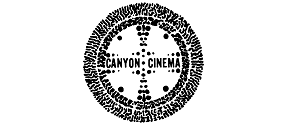Marquette Park (Chicago Nazis) - Part 1 and 2
- Tom Palazzolo |
- 1976-1980 |
- 55 minutes |
- COLOR |
- SOUND
For institutional purchase, click here: https://bit.ly/2AvuMZK
Films by Tom Palazzolo and Mark Rance
Marquette Park - Part 1 (1976 | 25min | Color | Sound)
Frank Collin, the leader of the Nazi organization, has since become a name in the headlines with his attempts to march into Skokie, a predominantly Jewish suburb of Chicago. Their right to march is being tested in the Supreme Court.
"MARQUETTE PARK is a steamroller of raw cinema verite, an unsettling look at the reaction of white residents to a black march into their neighborhood, and the role played in generating hostility by local Nazi organizers. Palazzolo, a veteran Chicago filmmaker whose earlier works come as close as any to embodying a 'Chicago style' of personal documentary, and Mark Rance, a student at MIT, have shot the events of a single afternoon from behind the 'white lines' in a straight and even-handed looking fashion, without a trace of moralizing or manipulation." - Ron Epple, Filmmakers' Newsletter
Award: Kenyon Film Festival
Exhibition: Cannes Film Festival, 1977; Ann Arbor Film Festival; Independent Expo; Bellevue Film Festival.
Marquette Park - Part 2 (1980 | 35min | Color | Sound)
"MARQUETTE PARK II trains its central gaze on the official onlooker: the media [covering the event of a march by the Chicago-based Nazi Party].
"The film's opening structure gracefully orders its priorities, giving us a flag-waving antifascist crazy, followed by Nazi clubhouse antics, displaced in turn by an emblematic TV screen in the center of the frame - a sly comment on the media identity of this event. Later there's a silent shot picturing the arrival of the press corps on the scene .... At Marquette Park, Palazzolo and Rance provide us with priceless scenes of the on-the-spot reporters in the very act of recording their stream-of-consciousness impressions. The process reeks with such schizophrenia that the credibility of on-location truth-telling will never be the same. "The intercutting of the media's presence, the Nazi's activities, and the media reporting of the day unmistakably points up how seriously the press treated an eminently ludicrous display. The earnest, deadpan tone of the reporters and television newsmen granted an aura of historical importance to the Nazi's buffoonery. ... [The film's] high points (which are many) show the real value of documentary." - B. Ruby Rich, Chicago Reader
These film are also available for loan on 16mm.

